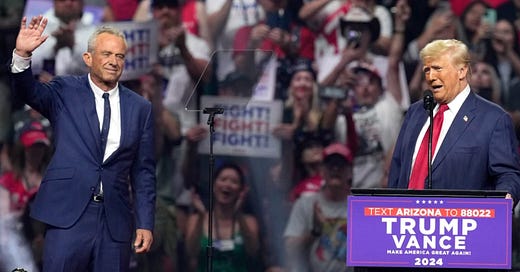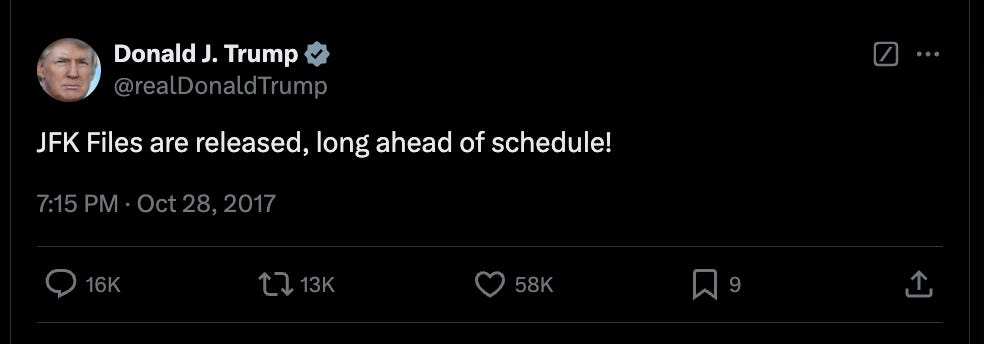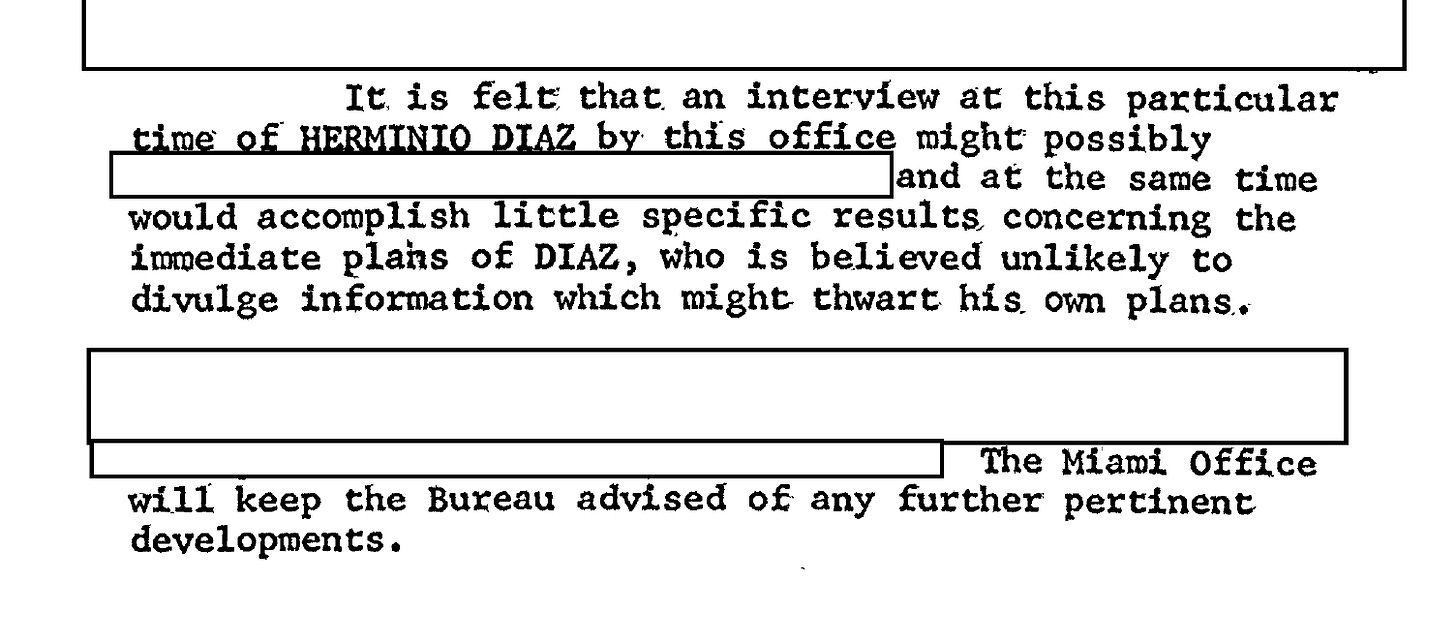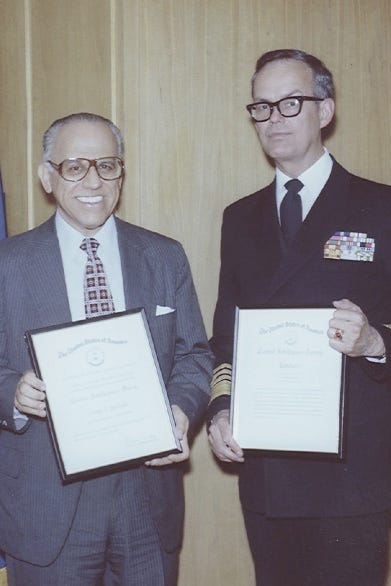Five JFK Questions for 2025
CIA demands for secrecy will test Trump's rhetoric on the assassination files
While we learned a lot in 2024 about key events leading up to the assassination of President John F. Kennedy in 1963—the surveillance of Oswald, the CIA’s doubts about the “lone gunman”—the coming year highlights the challenge of getting the rest of the JFK story out of the grip of a defensive national security bureaucracy.
(Some call this apparatus “the deep state.” Other more friendly sources speak of “the intelligence community.” I’m referring the 18 U.S. intelligence agencies whose functions and budgets are not public.)
While Trump’s election creates new possibilities for completing the historical record of JFK’s assassination, the obstacles to full disclosure in 2025 are many.
The institutional resistance of the CIA is sure to be strong. The documents in question shed light on highly sensitive, sometimes illegal, operations at the time of Kennedy’s murder. And the credibility of Trump’s promise to release the last of the JFK files is open to doubt.
1) Will President Trump rescind CIA/Biden ‘Transparency Plans’ on Day One?
Trump is planning to issue bold orders as soon as he is inaugurated on January 20, 2025, according to the Trump sources talking to the New York Times. But there’s no reporting in the past two months (that I know of) that indicates the JFK files are a Day One priority for the president-elect.
Until Trump acts, Biden’s June 2023 order on the JFK files will remain in effect.
2) Will Trump Expend Political Capital to Release JFK files?
Color me skeptical. Trump didn’t expand any political capital in 2017 when the JFK files question first came to him. He cut a deal with the CIA and tweeted (inaccurately) that he had released the files. That scenario might recur.
Trump’s erroneous 2017 tweet.
His 2023 promise on Truth Social.
3) Will RFK Jr. Have the Clout to Force Release Over CIA Objections?
Like his father, RFK Jr. firmly believes that his uncle was killed by enemies in the CIA. Some of the 20th century’s most astute power players (Charles De Gaulle, Fidel Castro, Harry Truman) shared that suspicion, so Kennedy’s conviction cannot be called irrational or unfounded. Baseless conspiracy theories notwithstanding, RFK Jr. was not influenced by the KGB. His views were shaped by his father and the evidence.
In a bid to “get to the bottom” of the assassination story, Kennedy floated the idea of having his his daughter in law, former CIA officer Amaryllis Fox, take a job as deputy CIA director on the 7th floor of the CIA’s headquarters in Langley, Virginia.
That gambit was swiftly shot down by Sen. Tom Cotton, chair of the Senate Intelligence Committee, a CIA ally and national security hawk. That means RFK Jr. may not have a point person inside the Agency to push for full disclosure—a necessity if the new administration is serious about getting all of the remaining JFK files. All the same, there is talk that Fox might still receive a senior CIA position that does not require Senate approval.
Trump’s nominee for CIA director, John Ratcliffe, a former Texas congressman, has no known interest in clarifying the JFK story or challenging the classification system. He is not likely to buck the Agency’s demands for continuing JFK secrecy.

4) Will Kash Patel Declassify an FBI Report on an Alleged Dealey Plaza Gunman?
Maybe. After RFK Jr. Trump’s nominee for FBI director is most outspoken of Trump appointees on the JFK files. In an interview last year Patel spoke of setting up a 24-7 declassification center for the whole government.
If Patel establishes such an office within the FBI, he would do well to start with this heavily-redacted 30-page report. It concerns a man named Herminio Diaz Garcia, described by the FBI as a “rather daring action-type Cuban” who was killed on mission to assassinate Fidel Castro in May 1966.
Diaz was named in Rob Reiner and Soledad O’Brien’s ’s popular podcast “Who KIlled JFK?” as one of the gunmen involved in JFK’s assassination. Two friends of Diaz’s said they came believe he was an assassin in Dallas.
The CIA’s Counterintelligence Staff expressed interest in Diaz in September 1963. Another CIA memo at the time noted Diaz was “capable of committing any crime for money.”
When fully declassified, the FBI document will illuminate Garcia’s relationship with the CIA in 1963. That may (or may not) shed light on the causes of Kennedy’s assassination.
5) Will CIA release the Joannides file?
In a 2022 letter to President Biden, Judge John Tunheim, former chair of the Assassination Records Review Board (ARRB) urged the White House to release the Joannides file, saying the CIA had deliberately misled the board about its contents.
Biden and the CIA ignored Tunheim’s recommendation. Will Trump do what Biden did not? (See Question 2).
The file is one of the most important outstanding JFK documents.
Joannnides, an undercover CIA officer, served as chief of covert action operations in Miami in 1963. He ran a secret program, code named AMSPELL, which guided and monitored the Cuban student group that publicized Oswald’s pro-Castro activities before JFK was killed and used its media connections to link Oswald to Castro in the hours after the assassination. And, 15 years later, Joannides was called out retirement to conceal what he knew about Oswald in 1963 from congressional investigators asking tough questions. He then received a Career Intelligence medal from the Agency for stonewalling Congress.
Forty four documents (dating from 1963-64 and 1978-81) concerning Joannides’ “intelligence methods” at the time of JFK’s assassination remain completely out of public view. They are, in the CIA’s lingo, “denied in full.” Without a bureaucratic point person or a congressional intervention, the Joannides file will remain off limits to the public indefinitely.
What are your JFK questions for 2025?










After reading this I have mixed feelings.
Trump complied with the CIA and other agencies at the beginning of his term not to release certain JFK related files. From the declassified e-mails it appears that Trump was not paying much attention to the issue and allowed himself to be trapped by the Establishment. CIA Director Pompeo indeed told Trump that people would die if the files were released. This is a variation on the same theme Johnson used to browbeat others to accept the results of the Warren Commission.
Biden bowed to the will of the National Security Establishment, and had Harris won, she likely would have as well.
So what to say about this upcoming term?
On one hand, Trump may want to work with certain elements in Congress who represent the National Security State in order to push through his agenda. This may mean once more kowtowing to them and finding some excuse to keep the files secret. That said, Robert F. Kennedy II now has influence in Trump's inner circle, and he and others like him may bring pressure on Trump to release the documents.
If anything we may see an internal war over this issue soon coming to a head in the Trump White House.
How hard Trump fights for Tulsi Gabbard as his Director of National Intelligence might indicate how hard he will fight to release all the JFK records. If he throws Tulsi under the bus, I suspect he will cave to the national security state again on the JFK files.
We will see how courageous Trump really is.